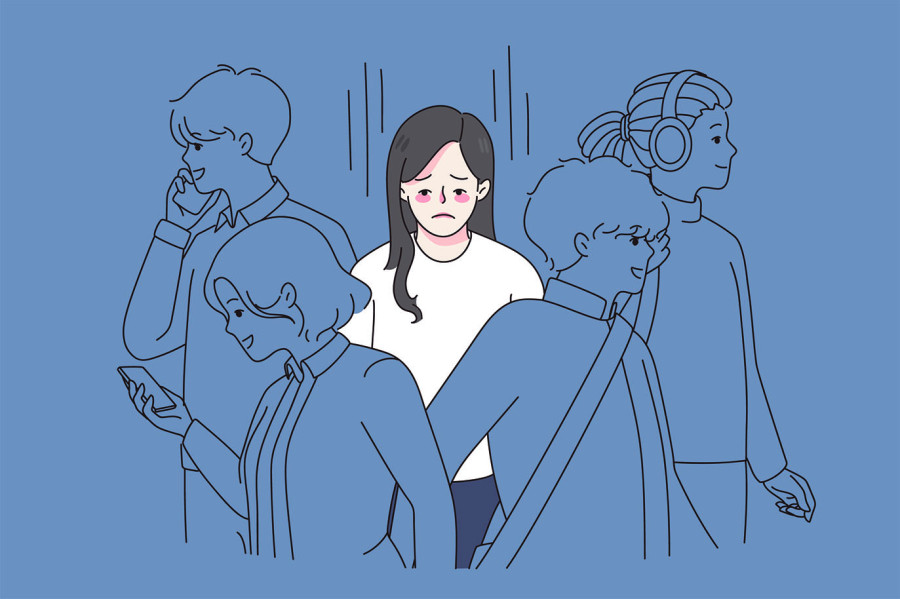Culture & Lifestyle
Dealing with inferiority complex
Neuropsychiatrist Prerna Jha discusses the roots and repercussions of the condition and shares effective coping strategies.
Aarati Ray
Prerna Jha, a neuropsychiatrist, specialising in psychotherapy and pharmacotherapy, explains the causes, symptoms and coping measures of inferiority complexes.

What are the symptoms of someone with an inferiority complex?
People with this complex often compare themselves to others and want others to approve of them, but they’re scared of failing or being rejected. They might get defensive when they feel threatened and have trouble believing nice things people say about them.
Some might try hard to be perfect or successful to make up for what they see as their faults. This complex can affect how they get along with others, how well they do at work, and how happy they feel overall.
What factors contribute to developing an inferiority complex?
Feeling like you’re not good enough can come from many different things, like when you were criticised or ignored as a kid or when your family always compared you to others or expected too much from you. Being bullied or feeling like you must be perfect can also make you feel this way.
Other times, it’s because of your personality or even your genes. It’s usually a mix of these things that makes you feel this way, showing how complicated it is to feel good about yourself.
How does an inferiority complex affect one’s life?
An inferiority complex makes one feel bad about themselves and unsure of what they can do well. This affects their relationships and work life.
They might always need reassurance from others in relationships or avoid taking on challenges at work because they fear failing.
How does an inferiority complex differ from low self-esteem?
An inferiority complex and general low self-esteem are similar, but they’re also different. An inferiority complex usually comes from specific things like being criticised or ignored in the past, making people feel like they’re not good enough.
On the other hand, general low self-esteem doesn’t always have clear reasons and can affect people differently
Both can make you feel bad, but an inferiority complex tends to make things feel even worse, causing more anxiety and making it harder to face challenges.
How do social and cultural factors contribute to developing an inferiority complex?
When we don't fit into societal standards, we feel inferior. How we interact with others and how they treat us can also make us feel this way. For example, if someone is always being teased or compared to others, it can hurt their confidence.
How can individuals with an inferiority complex overcome these feelings?
First, recognise what feel, and then try talking to someone who can help, like a therapist. Focusing on what you're good at and setting small goals is also helpful.
Surround yourself with people who uplift you. Taking care of yourself and being kind can help you start feeling better about yourself.
How can we prevent the development of an inferiority complex, especially in children?
To help kids feel good about themselves, ensure they know they’re loved and supported at home and school. Encourage them to try new things and praise their efforts, not just their successes. Teach them to be kind to themselves and others, and show them how to talk positively about themselves.
Also, help them make friends and be careful about what they see on TV or online.
Are there common mental health conditions that often coexist with an inferiority complex?
Several mental health disorders frequently accompany an inferiority complex, including depression, social anxiety, eating disorders, personality disorders like avoidant or dependent personality disorder, PTSD, OCD, and substance use disorders.
Feelings of inadequacy and low self-worth associated with an inferiority complex can contribute to the development or exacerbation of these conditions.
Have you observed any gender differences in the prevalence or expression of an inferiority complex?
Men and women might feel inadequate for different reasons because of what society expects from them. For men, it might be about being tough and successful, while for women, it could be about looking a certain way.
Men might feel they can't talk about their feelings because they're supposed to be strong, while women might feel like they always have to put others first.
Such pressures can make it hard for both men and women to feel good about themselves. Understanding these differences and supporting each other is important.
How does spending time online affect people with an inferiority complex?
Spending a lot of time on social media can make people with an inferiority complex feel even worse. Social media often shows only the best parts of people's lives, making others seem perfect.
Seeing all these perfect images can make someone feel like they're not good enough. Plus, always seeking likes and comments for validation can make them even more insecure.




 12.39°C Kathmandu
12.39°C Kathmandu















